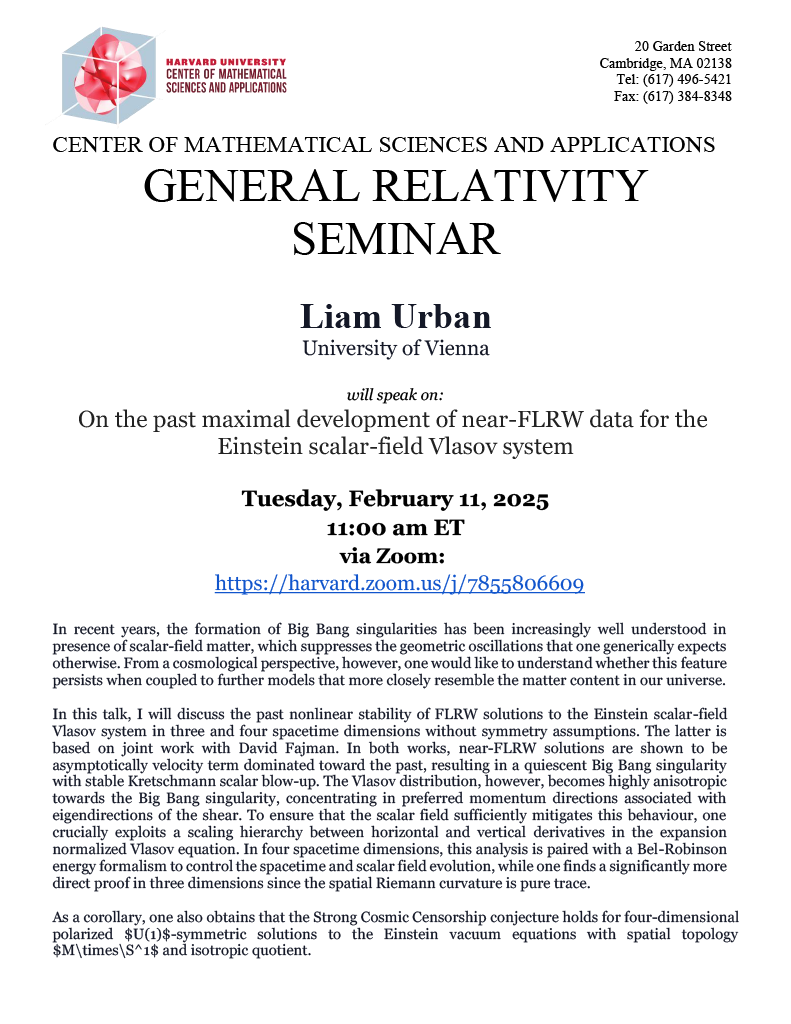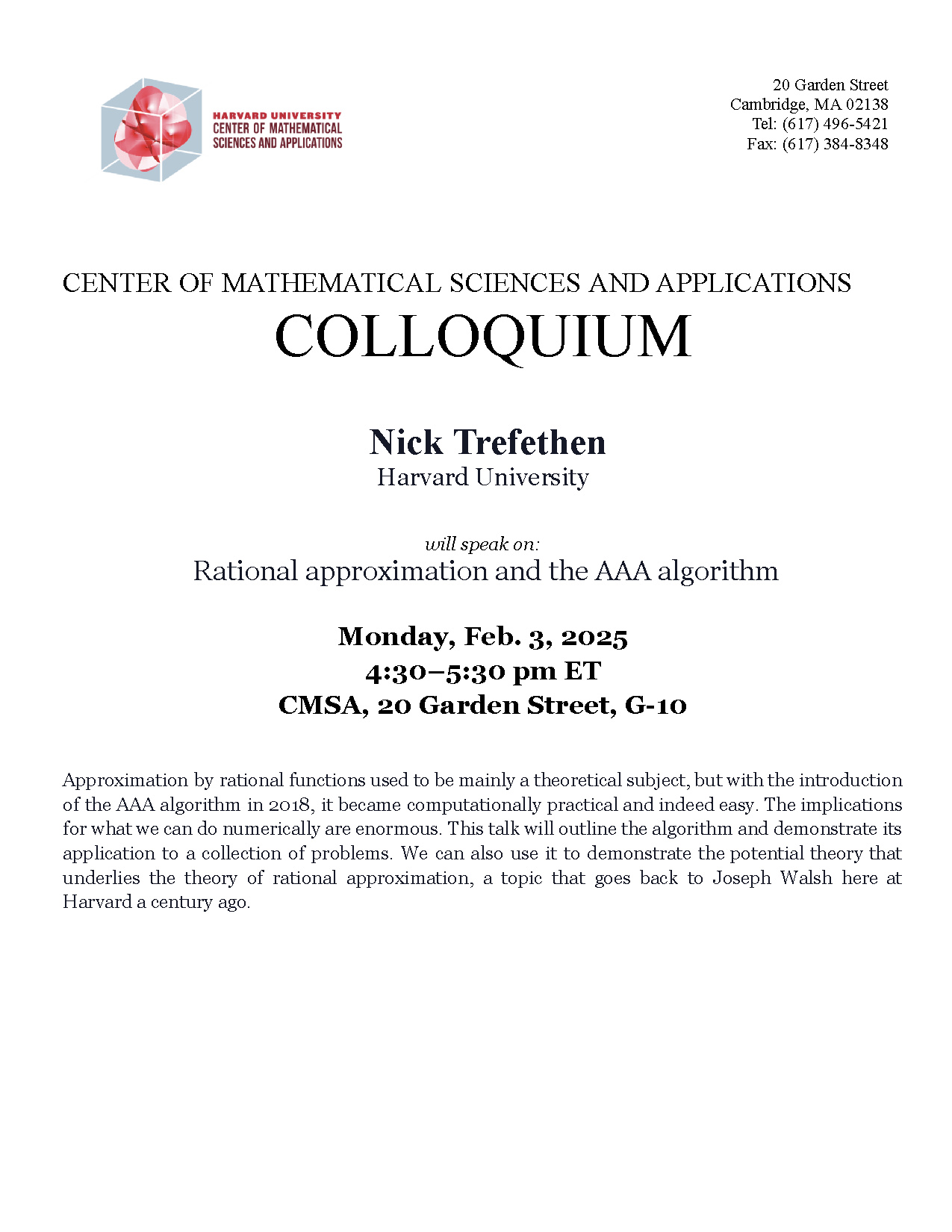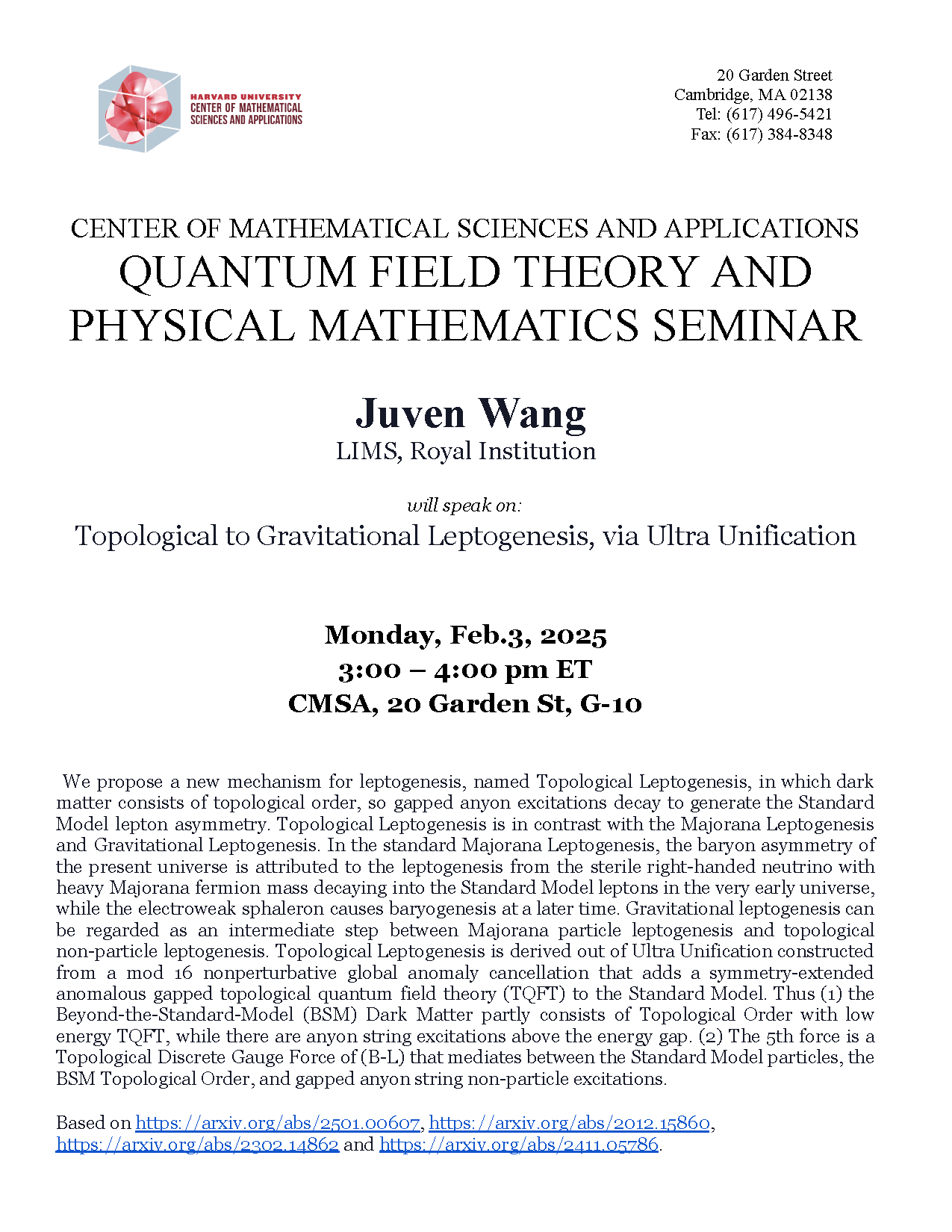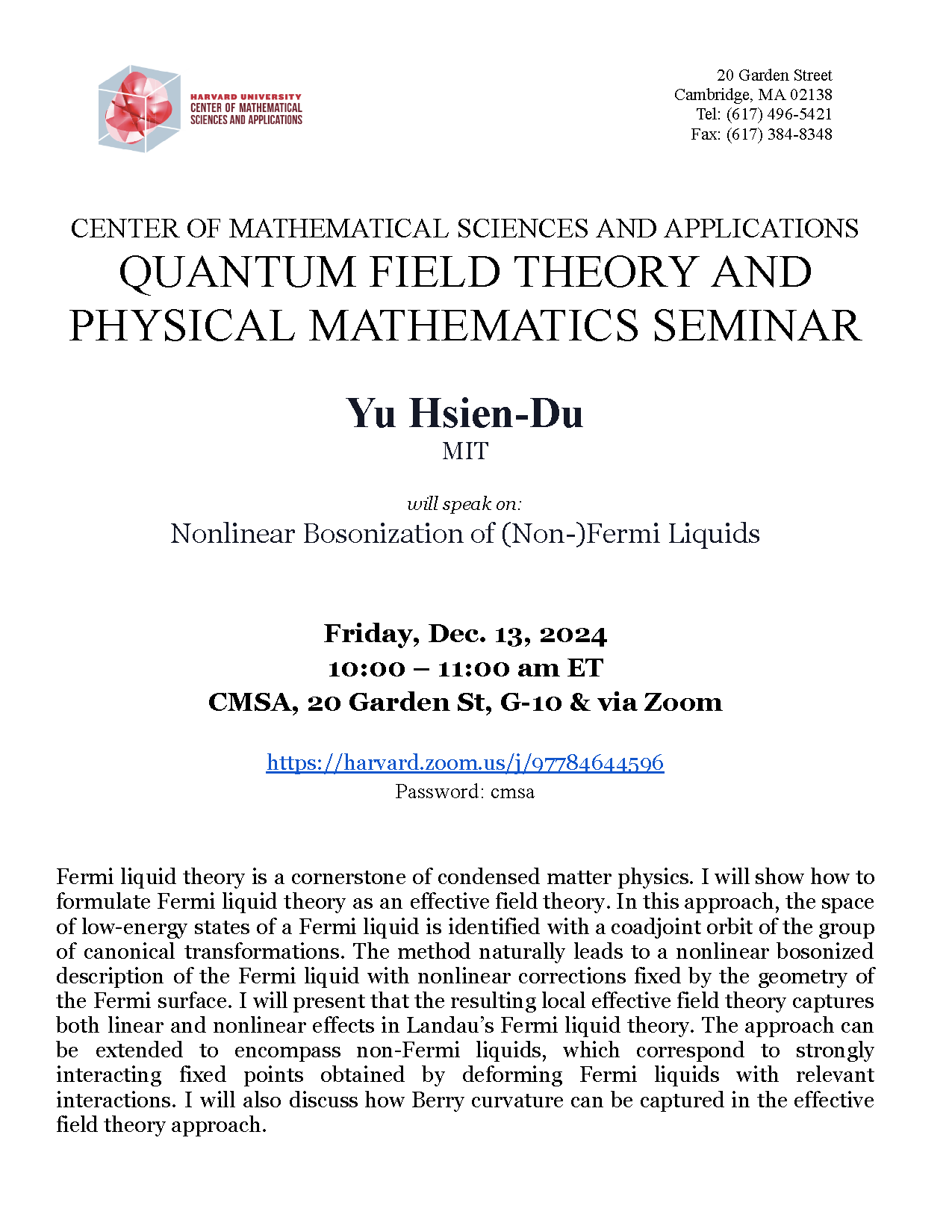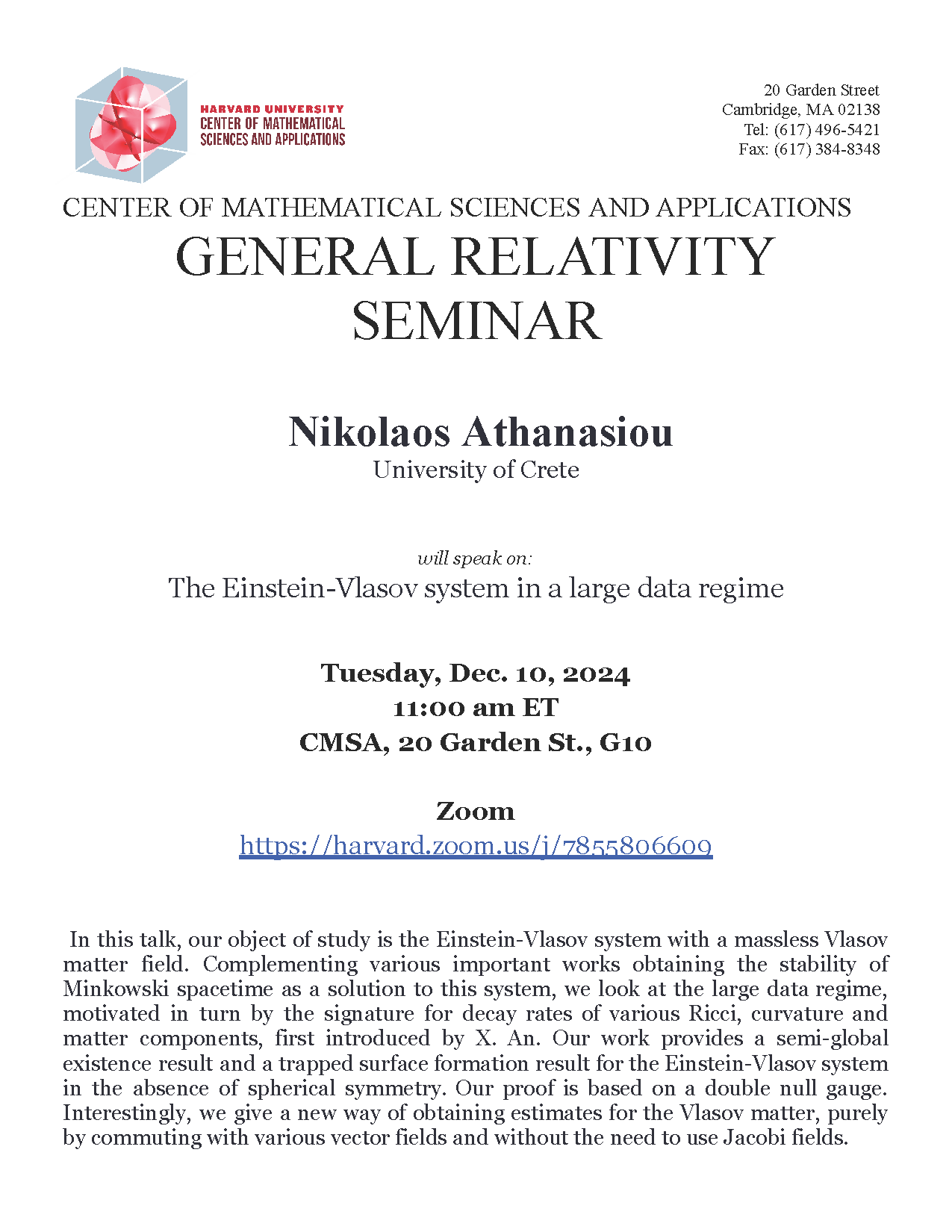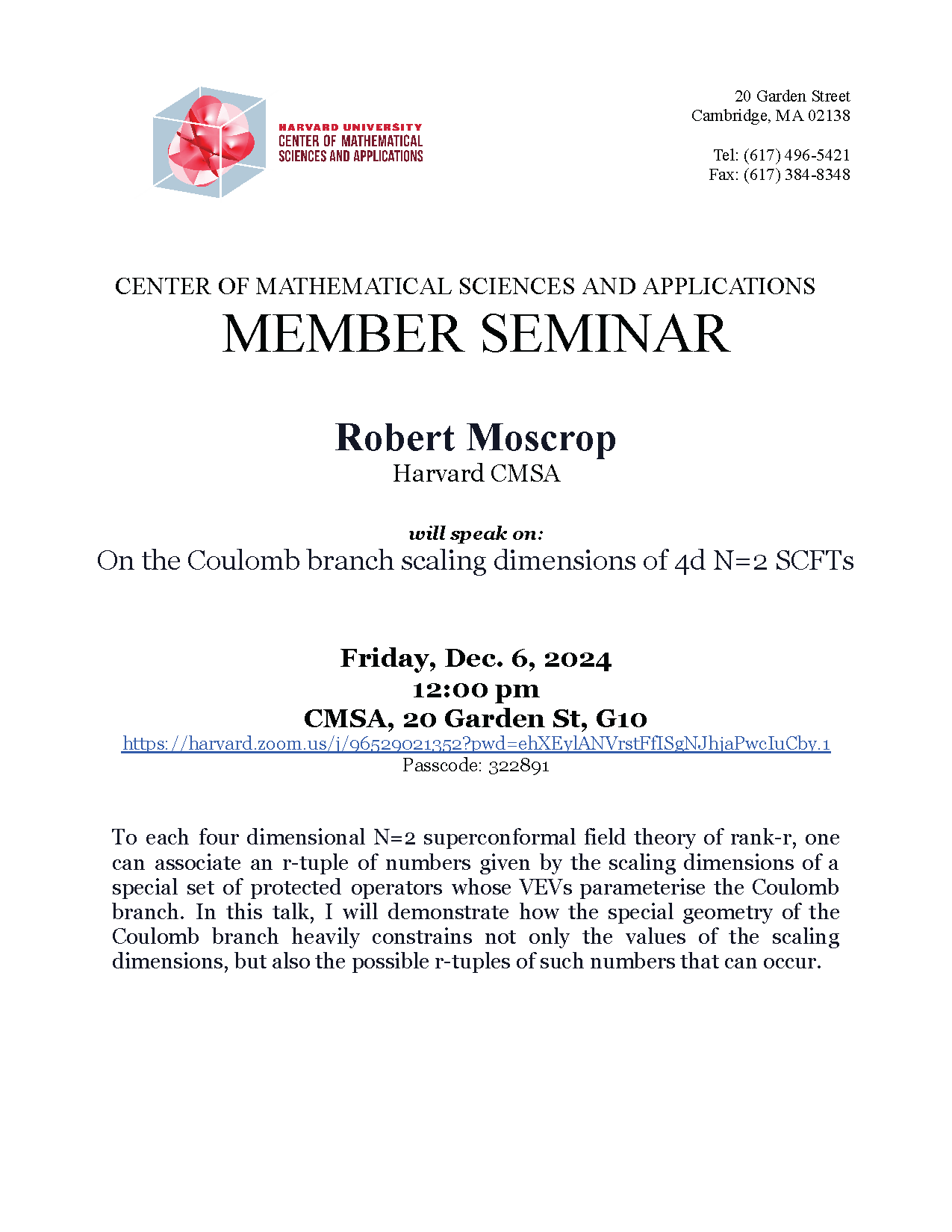
The Structure of the Flux Landscape
CMSA Room G10 CMSA, 20 Garden Street, Cambridge, MA, United StatesMathematical Physics and Algebraic Geometry Seminar Speaker: Damian Van de Heisteeg, Harvard CMSA Title: The Structure of the Flux Landscape Abstract: Identifying flux vacua in string theory with stabilized complex structure moduli presents a significant challenge, necessitating the minimization of a scalar potential complicated by infinitely many exponential corrections. In order to obtain exact results we […]

